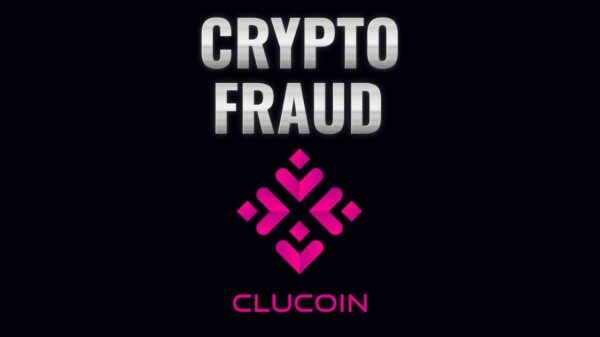With May marking Older Americans Month, last week, Florida Commissioner of Agriculture and Consumers Services Nikki Fried shared tips to recognize and avoid consumer fraud scams, specifically those that target seniors.
“With $3 billion in annual losses from scammers among older Americans, it is critical to educate our seniors and caretakers of elderly loved ones on how to recognize the signs of fraudulent activity to protect against fraud,” said Fried. “Together, we can help raise awareness of the warning signs to protect against becoming a victim of fraud and crack down on those criminals targeting seniors – not just during Older Americans Month but year-round.”
General Rules to Avoid Scams:
The Florida Department of Agriculture and Consumer Services (FDACS) and the Federal Trade Commission (FTC) recommend the following tips to help avoid fraud:
Resist pressure to take immediate action. Scammers will try to isolate you and will use scare tactics to create a sense of urgency. Don’t be rushed, and don’t believe anyone who says you don’t have time to talk to a friend or family member. Take the time to do your own research and talk with someone you trust.
Do not send money. If you are contacted by someone asking you to transfer money for them, it is most likely a scam. Wiring money is like sending cash. Once you send it, it’s gone. It is also never a good idea to deposit a check from someone you don’t know, especially if the stranger is asking you to wire money back to them.
Be wary of gift cards and cryptocurrency. Scammers utilize these forms of payment because they are hard to trace. Once the information from your gift card is obtained, it can be used by anyone. No legitimate business or government agency will insist that you pay with a gift card. For this same reason, anyone asking you to pay with cryptocurrency is likely a scammer. Cryptocurrency payments do not come with legal protections and once sent, are almost impossible to recover.
Report fraud. If you are contacted by anyone using the previous listed methods to pay or send money, please report the incident to FDACS online or by calling 1-800-HELP-FLA (1-800-FL-AYUDA). Additionally, please report to the FTC at ftc.gov.
Most Common Financial Scams Targeting Seniors
According to the National Council on Aging, seniors are more susceptible to the following scams:
Government Imposter Scams: An imposter scammer pretends to be someone you trust, oftentimes a government agency like the Social Security Administration, or the Internal Revenue Service. The scammer can have a fake name or number show up on your caller ID to convince you. Often, they will inform you your Social Security or Medicare benefits are in danger if you do not pay a fee or provide identifying information.
Do not trust the phone number: Often scammers will spoof the phone number from a relevant agency.
How to proceed. If you or a family member divulged personal identifying information or initiated a payment, follow these steps to protect yourself from further harm.
Grandparent or Emergency Scams: Emergency scams usually target parents, grandparents, or other family members. In these instances, someone calls or sends a message claiming to be a child or grandchild in trouble or the friend of a family member who is in trouble and urges the targeted victim to wire money immediately to help with an emergency.
• Validate before you send money. Confirm the person’s identity before taking any steps to help. Ask the person questions that only your loved ones would know and be able to answer.
• Verify with others. Before you send any money, verify the story with someone else in your family or circle of friends.
Computer Tech Support Scams: Tech support scams rely on convincing you of a serious problem with your computer. In doing so, the scammers will sell you services to “repair” your computer or will request remote access allowing them to find personal information on your device.
Consider who is calling. If you receive an unexpected phone call about your computer, hang up. Legitimate tech companies will not contact you by phone about a computer problem.
Do not call. If you see a pop-up window on your computer screen about potential threats, do not call the number. Real security warnings will never ask you to call a phone number.
Sweepstakes and Lottery Scams: There are many legitimate sweepstakes offered in Florida. Prizes in legitimate contests are awarded solely by chance, and contestants don’t have to pay a fee or buy something to enter or increase their odds of winning. In fraudulent schemes, “winners” almost always have to pay to enter a contest or collect their “prize.”
Verify the sweepstakes. Any sweepstakes offering prizes totaling more than $5,000 must file with the Florida Department of Agriculture and Consumer Services. This also applies to sweepstakes based in other states if they are conducted in Florida. Call 1-800-HELP-FLA (1-800-FL-AYUDA) to verify.
Never pay money to receive money. No purchase or entry fee is required in legitimate sweepstakes. Legitimate sweepstakes also don’t require you to pay shipping or handling fees, insurance, or taxes to collect your prize.
Don’t be deceived by official looking mail. It is unlawful for a promoter to lie about an affiliation with or endorsement by a government agency or any other well-known organization.
Romance Scams. A romance scam occurs when a criminal creates a fake online identity and uses it to gain the affection and trust of a victim. In romance scams, also called confidence scams, the criminal deceives a victim into believing they have a trusted relationship and then uses the relationship to persuade the victim to give money, personal and financial information, or items of value to the scammer.
Consider what you post. Scammers can use details shared on social media and dating sites to better understand and target you.
Research the person. Look at photos and profiles using online searches to see if the image, name, or details have been used elsewhere.
Look for suspicious behavior. Actions such as promising to meet in person, yet always having an excuse why he or she can’t, or trying to isolate you from family and friends can be signs that you are communicating with a scammer.
What should consumers do?
File a consumer complaint: To file a complaint, complete FDACS’ online form or call 1-800-HELP-FLA (435-7352) or 1-800-FL-AYUDA (352-9832) en Español.
Share your story: Share your story with friends and family or on social media to help others avoid falling victim to similar scams.
Review consumer resources: Consumers can find helpful tips and recourse at FloridaConsumerHelp.com.





















